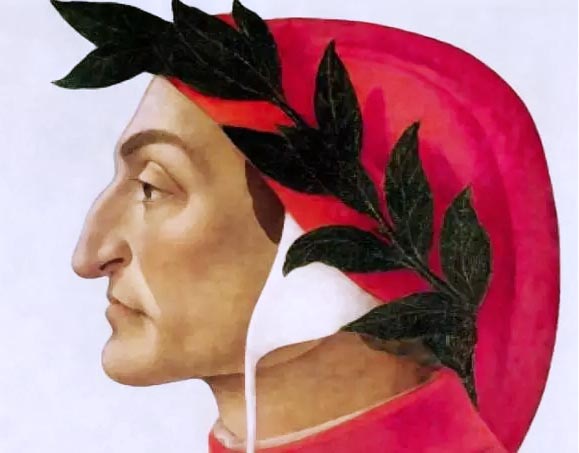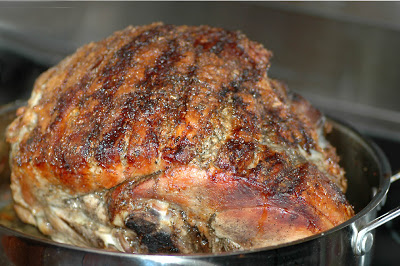Ahead of next year’s 700th anniversary of the death of Dante Alighieri, the father of the Italian language, this year Italy will celebrate another significant milestone in the life of the medieval poet and philosopher. 2020, marks the 700th anniversary of his immortal work – La Divina Commedia. Dante’s epic was completed a year before his death in 1321. Referred to in Italy as Il Poeta Supremo – the Supreme Poet, but known simply as Dante, he is one of the many treasures of Italian history.
The Divine Comedy is a long narrative poem representing a 14th century vision of the afterlife, describing Dante’s journey through the three realms of the dead: Inferno (Hell), Puragtorio (Purgatory) and Paradiso (Heaven).
Dante began composing the groundbreaking work around the year 1308 and famously wrote the poem’s 14,233 lines in the vernacular, opting for the Tuscan dialect which was accessible to the masses rather than the traditional Latin which was reserved for the most educated readers. It was not until over 150 years later that the first printed edition was published in Foligno, Italy. The date was April 11, 1472 and 14 of the original 300 copies are still in existence. Today Dante’s masterpiece is widely considered to be the pre-eminent work in Italian literature and one of the greatest works of world literature. Italy has declared March 25th as an annual national day in honor of Dante, to be known as Dantedì.
During his lifetime and over the centuries, the reach and importance of Dante’s words grew and grew until it reached epic heights. Dante is immortal, living forever not only through his poetry, but through each word spoken in Italian. His profound works traveled to every corner of Italy, giving rise to a unified Italian language.
Dante was born in 1268 in Florence to a prestigious and powerful family. While still young, his mother passed away, leaving the vulnerable boy in the capable and steady hands of his father, Alighiero II. His father leaned on family friend Brunetto Latini for help. Latini, a famous scholar, politician and poet influenced the young Dante in ways that would not be evident for years.
When Dante was only 12-years-old, he met the daughter of the Portinari family who were neighbors to the Alighieris. The daughter’s name was Beatrice and Dante had already been betrothed to another woman. While they both went their separate ways, Beatrice remained the object of Dante’s affections in his writings, including The Divine Comedy. When Beatrice died in 1290, he began to write poetry dedicated to her memory, filled with references to the sweet, pure love that was now lost to him forever.
Due to his family’s status, Dante had political responsibilities to fulfill. He excelled in his duties and in 1300 was chosen to be one of the Priori, a major ruling position, for two months. But his sudden rise to power created many enemies for him. In 1302, Dante was charged with political corruption and condemned to death. The only alternative to this fate was exile, which Dante accepted – a severe punishment for someone who loved his city dearly.
Banned from entering Florence ever again, Dante moved around the country from city to city. Not long before his death in 1321 he completed the Divine Comedy, the work for which he is best known. The premise of the Divine Comedy is that the poet awakes in a dark forest and is unable to find his way. The famous philosopher Virgil comes to him and escorts him through Hell and Purgatory to reach his true love Beatrice, who represents revelation and who will take him to Paradise. During the trip, Dante makes many political and scathing remarks about those whom he encounters in Hell and Purgatory. He created quite a stir by including popes and politicians, many of whom were still alive at the time.
One of the first and best efforts at political satire, the Divine Comedy became an immediate classic for religious readers and political commentators, both of whom found something to enjoy. From corrupt politicians to old friends past and present, Dante left no stone unturned in detailing what he perceived as false judgments and misgivings in the society in which he was living.
Even in death, Dante’s genius and humor resonated across Italy; in a sense that continues to this day. Though he will forever be associated with Florence, the city of his birth and also the dialect that he helped elevate to the national language of Italy, Florence is not the city where he is buried.
His remains are entombed in Emilia-Romagna, in the city of Ravenna, where he died in exile. This continues to haunt Florence, which erected an empty tomb in the Basilica of Santa Croce in his honor, adorned with the words, onorate l’altissimo poeta (honor the most exalted poet). The remainder of the verse from Dante’s Purgatory, l’ombra sua torna, ch’era dispartita (his spirit, which had left us, returns) is notably absent.
Dante was buried by the Church of San Pier Maggiore (now the Basilica di San Francesco) with all the pomp that Ravenna could muster. After a funeral attended by the city’s most illustrious families, his body was placed into a Roman marble sarcophagus that was laid to rest outside the church’s cloisters. There it remained for the next 160 odd years, undisturbed except for the addition in 1366, of an epitaph by fellow poet Bernardo Canaccio, who wrote, “… here I lie interred, Dante, an exile from my homeland, he who was born of Florence, an unloving mother.”
Meanwhile, Florence was growing distinctly fonder of her lost son. Fellow Tuscan poet Giovanni Boccaccio, who along with Petrarch, would follow Dante’s precedent of writing in the vernacular instead of Latin, wrote texts and gave lectures in praise of Dante, whose reputation was gathering weight across Europe. All of that praise inspired the Florentines to seek the return of Dante to the city of his birth. Seventy-five years after the poet’s death, the city made its first documented request for Dante’s remains. It would prove the first of many.
In 1396, Ravenna said no. In 1430, Florence asked again. Ravenna again declined. In 1476, Florence tried a third time – and for the third time, Ravenna turned them down. In 1483, the governor of Ravenna decided that the city’s most illustrious corpse should occupy a more prominent position. That year, Dante’s sarcophagus was moved to the other side of the cloister and a sculptor was commissioned to create a marble bas-relief of the poet at work to hang above it.
But the Republic of Florence was not about to give in. When Giovanni di Lorenzo de’ Medici was appointed Pope Leo X in 1513, what previous delegations had proved unable to achieve by diplomacy, he could demand by Papal Decree. He granted permission for a delegation to go to Ravenna to obtain Dante’s remains. The poet was to be returned to Florence and laid to rest in a spectacular monument designed by Michelangelo. When they arrived in Ravenna, they found that the remains had been moved and the location remained a secret among the Franciscan Brothers of San Pier Maggiore for another 150 years.
As the 500-year anniversary of Dante’s death approached, it was time for Florence to revive its claims to Dante yet again. The city commissioned a tomb of its own in the Basilica di Santa Croce, much grander than Ravenna’s, but as impressive as it was, Dante’s tomb in Florence has remained empty since its completion in 1830.
Still, Dante’s spirit lives on in Florence. Plaques on the narrow streets and alleys of the medieval city center where Dante himself once walked, display verses from his poems to millions of passing pedestrians each year. The church where he first saw Beatrice, stands well-preserved, just as it was in the 13th century. Dante’s face, with his characteristically sharp nose, stares down from the side of the National Library on a pedestal in the Piazza Santa Croce. Whether or not it was his goal, through his words, his poetry and his immense influence on the use of the Italian language, Dante has become as immortal as his Divine Comedy.





